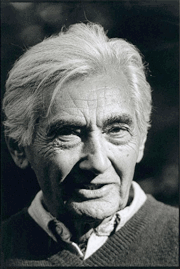Howard Zinn was
activist, radical historian, professor, veteran and writer, who was created and
defined by the turbulent times in which he lived, and who helped channel the
currents of historical reinterpretation of many of the defining political
events of the United States of America from 1950s through to the 1980s. In his
early life he was a follower of Marxist socialist philosophy which gave him his
proletarian views, which would later resonate so well with the people and
events in the US and abroad. Zinn’s sensibilities and sphere of influence
always revolved around controversy. His political and social philosophy against
the oppressive forces governments and of racial and political inequality, was
forged in the crucible of the 1960s civil rights movement and reinforced by his
vociferous opposition to the Vietnam War. His World War II service consolidated
his beliefs about the United Sates’ antidemocratic use of the power structures
to facilitate increased militarization to promote empire, which was epitomized
by their use of the new technologies of mass murder he witnessed: napalm and
the atomic bomb.
Zinn was a
competent, lucid and extensive writer, best known for his victims’ perspective
book, The Peoples History of the United
States which, with the help of his neighbour, Matt Damon, catapulted him to
fame and provided him with a more public forum to dispense his social,
political and historical ideology. But he was much more than just this book. He
was essayist, playwright, activist, and a university campus agitator in both
Atlanta and Boston. He organized student agency with the middle-class black
women at Spelman College, through their Student
Non-Violent Coordinating Committee (SNCC), for which he was eventually fired. He also had to
continually defending himself from autocratic managers of both institutions due
to his insubordination and resistance to what he perceived as illegitimate
hierarchical authority.
His early years at
Spelman made him keenly aware of the power of the media, particularly
television, as a very powerful vehicle for propaganda, often more potent than
the written word. He surmised that it also could be used to redress inequality.
Television’s ability to enthral and galvanize opinion, or to repress dissenting
voices, he saw as an opportunity to provide an alternative narrative of current
unfolding history, by exposing deceit hiding in plain sight. To this end he was
using the nascent mass media, for coverage of the SNCC meetings, the
documenting Freedom Day in Hattiesburg, the march in Selma with Dr. King, as
well as his highly visible travel to Hanoi, to receive released prisoners for
the United States during the Vietnam War. His sagacity was that he used what
most purist academics chiefly shunned. In the 80’s he was still using the same
media lens to promote the topical and historical injustices he wrote about in
his books.
While he has been criticized
by academe for his lack of scholarly rigorous research, which thereby denied
him the right to claim the epithet of radical historian, he nonetheless has
inspired millions who have read his work or listened to his calls to action in
the televised age. Academics rightfully claimed that he had an undeveloped
political philosophy and reduced
historical analysis to partisan, unbalanced political opinion. And, while he
still is not taken seriously as a peer-reviewed scholar, he cultivated the
field of radical history for the vanguardist New Left in the United States, all
the while never being interested in joining the coterie of these professional, academic
historians. Critics
also point to his very late embrace of gender equality, and outright detachment
from, gay and lesbian inequality issues, as a character flaw in his undeveloped
political philosophy.
However due to his
public stature, his call to resistance against tyranny, his genuine passion for
his causes, and his advocacy to critical discourse spurring action, he has
encouraged both idealists and students to political agency and to envision an
engaged, democratic, radical activist future. It is why he still endures as a luminary
to the many, even in our digital age, where oppressive social and political
forces have become global phenomena.
.
References
Duberman, M. B. (2012). Howard Zinn: A Life on the Left.
The New Press. [Kindle Edition]. Retrieved from
Amazon.ca



No comments:
Post a Comment